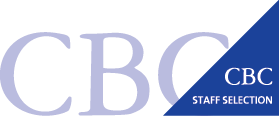
Preparing to Succeed at an Interview
Preparing for important events in life versus ‘winging it’ is generally accepted as best practice. It is always obvious when you haven’t put the work in, none more so, than when it comes to job interviews.
Being organised will not only demonstrate that you’re serious about the role, but it will also demonstrate your professionalism. We spoke to Sally Mlikota, Director CBC Staff Selection to get her top tips on how to prepare for that all important interview, so you can present the best version of yourself whether you’re going for the job or recruiting for it.
I have an interview for my dream job, how do I prepare?
Resumes only tell one side of story, but the interview provides an opportunity to dig deeper, so prepare and be ready.
Research pays off
Every employer is different and knowing what is important to them is vital. The more research you’ve put in beforehand, the better you’ll understand the organisation, what they are looking for and the people interviewing you.
It’s difficult to demonstrate you’re the right person for a role if you aren’t across the business. Thankfully, there is always a wealth of information available online. Remember, this works in both directions, so ensure any public social media posts show you in a good light.
Stop and think about the job description and ask yourself ‘’why would they want to interview me? Why would I be good for the job?’’. Have four main strengths that relate to the skillset they advertised planned, and make sure you can articulate your experience in a behavioural based way.
Check for compatibility
Many companies use the STAR method of interviewing, which stands for – situation, task, actions and results. This means that when you are answering a question or discussing your skills or experience, they are looking for you to illustrate these points.
Even if they don’t use this method, you can use it alongside the selection criteria, so you can articulate relevant examples clearly. This will help you be confident that your mind won’t go blank when you need to discuss your experience and ensure you give yourself the best advantage.
Whilst interviews are an opportunity to put your best foot forward, ensure you have prepared some weaknesses as well as strengths and if you can, discuss how you deal with them. Employers know unicorns don’t exist, so it’s important to show you’re willing to continually learn or improve.
Be prepared for questions such as ‘’what are your core values?’’. Check the mission and vision statements for the employer and make sure they align with your belief systems. If they don’t, it is almost certain that the role isn’t right for you.
Stand out at interview
Make sure you understand the type of interview you’ll be attending. Is it a behavioural, situational, unstructured or a panel interview? It is perfectly acceptable to ask who will be on the panel and what you should prepare. It will also set you apart from other candidates if you show you’re taking it seriously.
Print a copy of your application and resume and take it with you to the interview. Not only does this look professional and organised, it also reduces the chances of error if you’ve sent out numerous applications.
We know that first impressions count so dress to impress. This means ensuring your clothing is clean and ironed and also, suitable for the role. You wouldn’t attend an interview for a bank in the outfit you do the gardening in for example.
Always have questions to ask at the end but a cardinal rule is not to enquire about salary, holidays or lunch breaks at this point. That is for the offer stage. Finally, make sure you follow up after the interview with an email thanking the employer for their time.
I am interviewing candidates for a job, how do I prepare?
We are in a candidate driven market at the moment, which means it’s more important than ever before to stand out, for all the right reasons.
Ensure there are no barriers at the interview that separate you and the candidate. It’s fine to sit across the table but avoid having items such as computers, phones bags and general clutter in the way.
How you sit is also important, as is your handshake. Keep it friendly but firm. Remember to smile and make sure you offer the candidate a drink. Stick to the schedule so you can show you’re efficient and reliable. This also helps to reduce nerves and overall tension which helps you get a more accurate impression of the person.
Preparing questions that match the selection criteria is important. Not only will this ensure discussions are relevant but if it is a panel style interview, you can plan who is asking which question. Structured, set questions will also help you avoid any bias and provides each candidate the same opportunity to shine. This will help you evaluate candidates logically after the interviews are completed.
Never offer a candidate the job on the spot. As much as you might be 100% sure they are the perfect person, this will come across as desperate. It’s likely to put them off as well as place pressure on them to give an answer. Taking your time is important for both client and candidate, plus an offer should be made in writing and state all of the conditions of employment.
Finally, try to make interviews an enjoyable experience. You have two ears and one mouth, use them in this ratio and make sure you listen rather than talking about yourself. Even if there are awkward silences.
Once you’ve successfully hired your new team member, it is important to let those who applied know they weren’t successful. For the people who attended interviews, thank them for their time and give them some feedback to help them at future interviews. Remember that even if you have to reject a person, do so professionally as this is a reflection on your organisation. Reputation is extremely important in business and you never know when you may cross paths with that person again.
